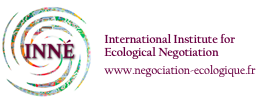
OUR MEMBERS
Our role is to bring all together the best existing knowledge and tools relative to improve the relationship between humans, and between humans and nature, in order to create a stimulating dynamic and activate a global action.
Your country or your competence is not represented in our team?
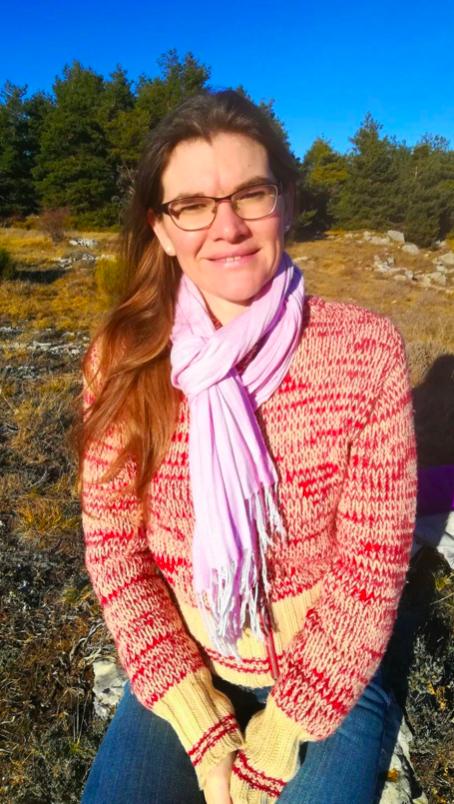
Sève Carrez (President) is Doctor of Environmental Law and Associate Researcher at Gredeg-CNRS in Sophia-Antipolis. She specialized in Global Ecological Strategy by supporting a Mexican environmental engineering company in its international development. In 2018, she assisted the Tunisian delegation in the technical negotiations on climate change at COP24 in Katowice, dealing mainly with climate finance and adaptation fund issues. As an international speaker, she is particularly invited to discuss issues of environmental diplomacy, ethical finance and climate change adaptation.
Since 2007 Séverine has been a member of several expert committees within IUCN, and is a member of the Climate, Natural Resources and Energy Section of the Comparative Legislation Society (SLC) since 2018.
Facing an increasment of the number of conflicts related to ressources access, environmental impact of industrial projects, biodiversity loss and climate change, her principal concern is to act quickly to preserve a sustainable and peacefull relationship between humain and nature using the apropriate methods to fluidificate comunicacion and concerns about our internal and external environment. The Ecological negotiation is a disruptive and renewed approach to the human-nature relationship. It implies the overcoming of individual conditioning to approach humanity in the sense of the living, the common, the universal. It invites us to rethink humanity and its adaptation with regard to an inspiration drawn from Nature. The very structure of the Institute invites this opening.
In addition to her Doctorate, Séverine holds a Master’s degree in International Economic Law, a bilingual law degree from French law-Spanish Law, and an LLM Environmental Law from the University of Auckland.
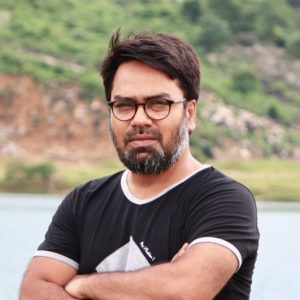
Syed Mahbubur Rahman (Bangladesh) is a RONPAKU Fellow funded by Japan Society for the Promotion of Science (JSPS) under the Ministry of Education, Culture, Sports, Science and Technology, Government of Japan. He currently works at the Department of Operations and Supply Chain Management, American International University-Bangladesh.
Previously he worked at University of Nizwa, Oman; Institute for Applied Material Flow Management (ifas), Germany. He has also served in financial institutions in Bangladesh for couple of years.
Syed earned Master of Engineering major Applied Material Flow Management from University of Applied Sciences Trier, Germany; Master of Science in International Cooperation Policy from Ritsumeikan Asia Pacific University, Japan; and Master in Bank Management from Bangladesh Institute of Bank Management. Earlier he finished Bachelor of Business Administration from Islamic University, Kushtia, Bangladesh.
Syed does research in both Qualitative and Quantitative Social techniques. His research interest includes among others, climate change, (especially climate finance), adaptation to climate change, energy and environment policy, co-benefits as well as role of elites in climate change and climate finance. He also has interests in tobacco control and sustainable development. He has published numerous articles in different journals including Energy Policy, Renewable and Sustainable Energy Reviews, Development in Practice, and International Journal of Green Economics.
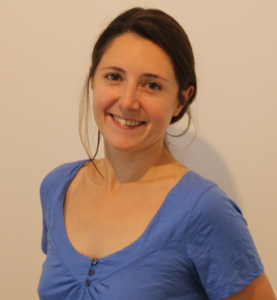
Adélie Pomade (Secretary, France) is a teacher-researcher in law (HDR) at the University of Western Brittany (UMR AMURE). Her work on the role of civil society in the development and application of environmental law has led her to appreciate more broadly the role and place of legal regulation in society.
As a specialist in the games of actors and sets of standards in the construction of the society’s regulation, her research themes are diversified (agriculture, forests, biotechnologies, energy, sea …) in order to provide comparative lighting. Her work has been awarded by the Institut de France and the Vermeil Medal from the Académie d’Agriculture de France, and reflects her legal scientific position, which is resolutely open to the sensitivities and challenges posed by the environment to life sciences.
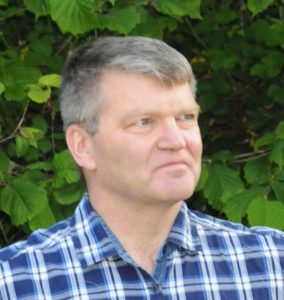
After an initial career as a 15-year-old officer, particularly in the Foreign Legion, Patrice Valantin is an entrepreneur. He founded and directed for 14 years the company Dervenn, specialized in studies and work on ecosystems and biodiversity. He then created Reizhan in 2016, a company whose purpose is the mutation of social economic models to reintegrate them into living systems. Since 2015, he has developed training courses based on natural immersion. The School of Living Systems (Ecole des Systèmes vivants) is aimed both at young people in search of meaning by the Irvin method as well as companies and organizations to accompany the evolution of the models by finding a carnal and emotional link with life.
Patrice Valantin is a peaceful revolutionary whose goal is to replace the dominant economic model in order to reintegrate human societies into the dynamics of living systems. He is an entrepreneur and action is his priority.
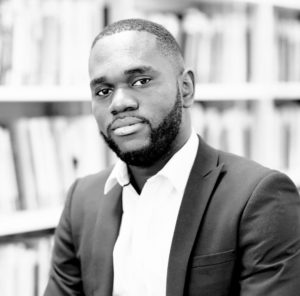
Larios Mavoungou (Congo Brazzaville) is a temporary teaching and research associate and PhD C. in business law at the Université Côte d’Azur. He is a member of the Research Group on Law, Economics and Management (GREDEG). His doctoral work focuses on the legal responsibility of multinational corporations for human rights abuses. It reflects on the normative framework for empowering these companies on the one hand and the judicial mechanisms allowing victims to have access to justice in the event of infringement of their fundamental rights and freedoms on the other.
He holds a Master’s degree in Economic Law, a Master’s degree in Business Law and he was licenced at the University Marien Ngouabi of Congo Brazzaville. His interventions focus on commercial law and contract and consumer law. However, its areas of research and reflection revolve around issues related to corporate social responsibility or CSR and corporate governance. He is also a member of the editorial team of the blog: Corporate Law, Comparative Governance and Social Responsibility, under the direction of Professor Ivan Tchotourian of Laval University (Quebec-Canada).
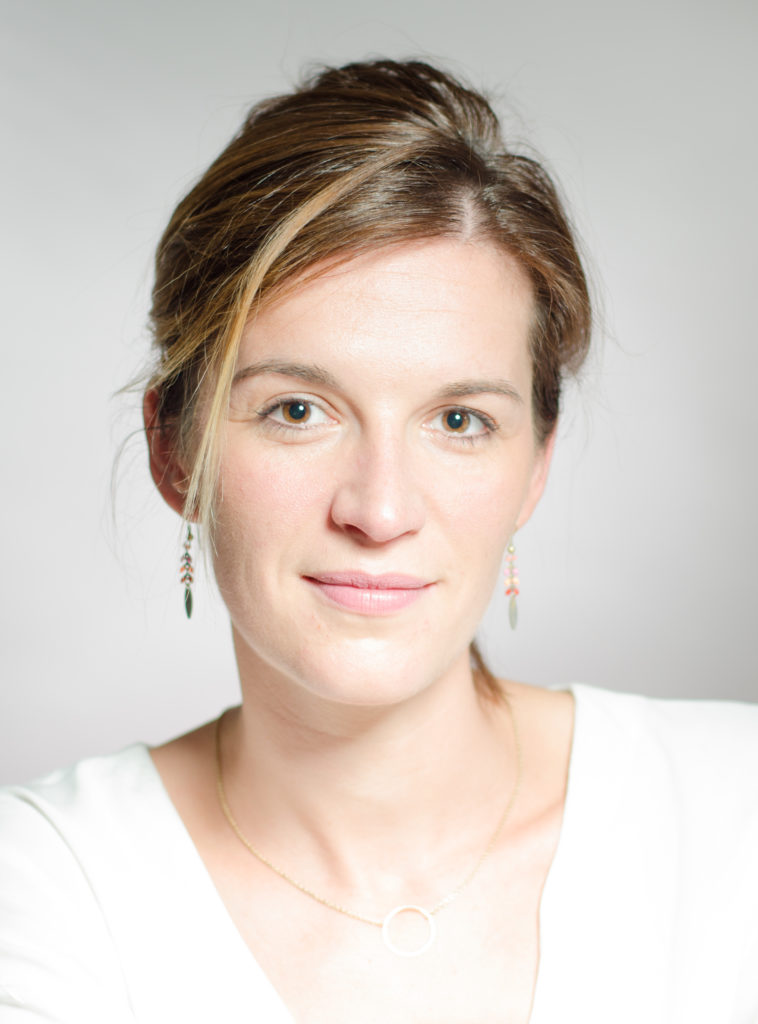
Virginie Linder (Tresori, France) is Ph.D. in public law, she is a contract teacher at the University of Cergy Pontoise and an associate member of the MRTE laboratory. She is co-head of the Master’s degree in Environmental Management and Engineering (MISE). Involved in the associative life of her region, Virginie participates and organizes seminars and citizen consultation sessions in order to change public participation and guide her in the involvement of the issues of her territory. She is then interested in innovative techniques and methods of Group Management such as Design Thinking, aiming at developing a renewed approach to the dialogue between the actors of the territory.
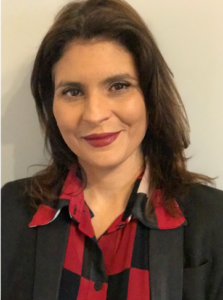
Ph.D. in environmental law, lawyer in France and Brazil, training publicist and privatist, Ana Rachel Teixeira Cavalcante (Vice-President, Brazil) intervenes, as a lawyer and researcher for more than 15 years.
Her career began as a lawyer at the firm Cavalcante & Pereira in Belém-PA in 2000, with Mr. Ophir Cavalcante Jr., former President of the Federal Council of the OAB and in the ordinal bodies with the creation within the OAB / Pará of the Commission for Biodiversity and Bioetics, and its coordination in 2001/2002.
Subsequently, she moved to research and teaching in France with a Master’s degree in environmental law and urbanism and a PhD under the direction of Professor Michel Prieur.
While teaching at Sciences Po, she completed a post-doc at the CNRS on patents and nanotechnologies, before joining the Foundation for Biodiversity Research (FRB) in 2011 as a senior lecturer on the right to the environment and then as FRB legal project manager for the Oceanomics project (focus: biodiversity and sea law, intellectual property rights, consortium agreements), before returning to the legal profession.
Following her equivalent of attaining the status of a lawyer in France, Ana Rachel Teixeira-Cavalcante joined Hélios Avocats, where she works alongside Thibault Soleihac on environmental law, energy law and planning urbanism, and with Christophe Savonnet in the field of intellectual property and consortium agreements.
She also advises companies on French law and Brazilian environmental law, and supports them in the implementation of their projects in these two countries. In Brazil, she works with a network of law firms in São Paulo, Rio de Janeiro, Brasilia, Para, Rio Grande do Sul, Santa Catarina and Alagoas.
Thanks to this double culture of the law and the profession of lawyer in France and Brazil, she was appointed expert responsible for the revision of the French-Portuguese (BR) translation of all texts relating to the status of lawyers in France, commissioned by the National Council of Bars.
She is also the author of numerous academic works and publications on her field of intervention.
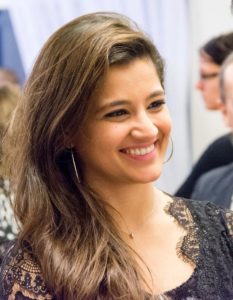
Yara Daou (Libanon) is project coordinator on climate change at the United Nations Development Program. Her job is mainly to support the Lebanese government for a good performance of its obligations as a signatory to the United Nations Framework Convention on Climate Change (UNCAC). The nature of her role has led her to master the complex and transversal approaches of multidisciplinary environment and development issues. Scientific research applied to climate policies, negotiations within the UNCAC, training of specialists and communication: this diversity of functions and partners has made her determined to forge lasting links between different governmental and non-governmental actors, based on an understanding deep and mutual understanding of environmental, economic and social issues, with the aim of guaranteeing a prosperous and balanced future for all.
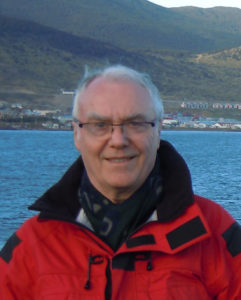
Patrick Blandin (France) was born in 1944.
He is Professor Emeritus of the National Museum of Natural History.
Meanwhile, passionate about butterflies, and more broadly by the natural sciences, he studied in this area at the Ecole Normale Supérieure, and then prepared a doctorate of State thesis devoted … to the ecology of spiders in a African savannah (1981). This did not prevent him to study the systematics, the biogeography and the evolution of South American butterflies, research which he pursues today in relation with a team of the Systematic Institute, Evolution, Biodiversity in the Museum ( UMR 7205).
In 1975, the ENS entrusted him with the responsibility for a field near Nemours, which became the Biological Station of Foljuif, where he conducted research in forest ecology until the 1990s. bioindicators of periurban forest attendance, the Interdisciplinary Program for Environmental Research (PIREN) of the CNRS asked him in 1980 to set up an “observatory of sociological, economic and ecological changes relating to peri-urban forests” (1980-1983). At that time, the Ministry of the Environment had commissioned him a “Synthesis and evaluation of research on the development of biological indicators to characterize the state and transformation of ecosystems,” published in 1986. At the same time, he participated in the mission led by the economist Claude Henry “, that the Minister of the Environment had commissioned a report on” the organization of research and training for the ecological mastery (1984), and the book “Rational foundations of spatial planning” led by Professor Maxime Lamotte, with whom he wrote the chapter “Ecology of systems and planning: rational foundations and principles methodological “(1984). It is in this book that we have proposed the notion of ecocomplex, an assembly of ecosystems, representing, at the scale of a territory, a higher level of integration. We have subsequently clarified this concept by defining the ecocomplex as a set of interactive ecosystems derived from a common natural and human history on a territory scale.
Since 1974, he taught ecology in a postgraduate course run by the French National Commission for UNESCO, aimed at training young managers in developing countries in the management of natural environments. This teaching, which became a UNESCO Chair in 1994, was renamed “Development and Integrated Development of Territories” (DAIT). He was one of the animators, until 2009. He also taught for several years the ecology, fundamental and applied, in the universities Paris 6 and Paris 7.
In 1988, he was appointed Professor of General Ecology at the Museum. He was in charge of animating the scientific commissariat of the theme “the man factor of evolution” for the preparation of the Great Gallery of Evolution (1989-1992). New interdisciplinary experience, which fueled his thinking about nature conservation, which had to be considered from an evolutionist perspective. At the same time (1989-1991), he was strongly involved in a commission of professors of the Museum solicited by the National Forest Office to enlighten the debates on the future of the forest of Fontainebleau: meeting of the stakeholders, writing of a report proposing a “project”, with the suggestion of reaching a biosphere reserve of UNESCO’s “Man and Biosphere” program. It was a first experience that made me realize the importance of negotiation for the future of a territory. At the same time (1990-1992), he worked on a report on the concept of “ecological engineering”, as part of an order from the Minister of the Environment. At the same time, he animated a new interdisciplinary program, funded by the CNRS (thematic program “Ecological Systems and Human Actions”), entitled “Becoming Woodlots in the Plains of Field Crops” (report in French). 1996). And at the same time, in 1992, he was asked to chair, on behalf of the Museum, the creation of the French Committee of the International Union for the Conservation of Nature (IUCN), from where a dive, but from a managerial point of view, in the world of international conservation, especially since it was necessary to organize at Fontainebleau, in 1998, the celebration of the fiftieth anniversary of the founding of IUCN.
In 1997, he was entrusted with the scientific responsibility, on behalf of the Museum, for the expertise of a “planning-conservation conflict” that had a certain impact: the case of the A 28 motorway and the Pique- plum, in the Sarthe. Completed in 2002, this expertise was an exceptional opportunity to reflect on the value of an “uninteresting” species, the legitimate diversity of viewpoints, the sometimes perverse processes of certain actors, and the weaknesses of impact studies.
He then began to reflect on the relationship between the notion of biodiversity and science (essentially ecology), on the one hand, the ethics of the other, reflection from which several publications and two books will result: ” From the protection of nature to the control of biodiversity “(2009, Editions Quæ) and” Biodiversity, the future of the living “(2010, Albin Michel), honored with a Grand Prix of the French Academy. This resulted in a resolution adopted by IUCN at its 2004 General Assembly to develop a “Code of Ethics for the Conservation of Biodiversity”, a task that IUCN assigned to its Ethics Specialist Group. The implementation of this resolution, of which I was one of the co-pilots, led to the launch, in 2010, of the Biosphere Ethics Initiative. This initiative proposes, for example, that actors concerned by the same territory, seek together the values they can share to define their “territorial project”, based in a way on a “local ethics”. In my opinion, a territorial project, negotiated between stakeholders, must define a “desired” state, to be reached by an ad hoc conduct of the trajectory of the territory and its various components, which must preserve adaptive capacities, species, ecological systems and human communities, so that other trajectories remain possible. This vision is similar to that which the UNESCO Chairs for Sustainable Development sitting in France proposed in a publication (2009) that he co-ordinated:
“Development is a set of processes by which a particular human society seeks to create the most favorable conditions for the material, intellectual, and spiritual well-being of each of its members. Such a development is said to be “sustainable” when the environmental, economic, social and cultural conditions created by this society at a given moment, according to its values, do not reduce the means available to subsequent generations to create in their turn the conditions of their well-being, according to their own values. Since human societies are diverse, their projects are necessarily diverse. But there can be sustainable development only if local projects are developed in a concern for global solidarity, because the planet and the humanity that inhabits it form a unique ecological system, tracing a single story over time. “
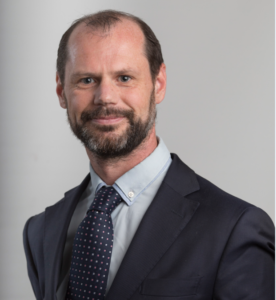
Guillaume Aréou (France, Africa) is a Ph. D in law and a lawyer specialized in international arbitration. He acts as an advisor in international arbitration proceedings between private investors and states or state entities. He has extensive experience in Africa, particularly in the construction and energy sectors. He has extensive knowledge of international investment law and public procurement law.
This experience allows him to have a practical and theoretical vision of the economic development of the African countries through the right and the dominating role that the right of the environment. Concerned with preserving their environment, African states already have regulations requiring the respect of environmental standards in the context of the execution of public contracts, be it a dam and the consequences of its impoundment. or the construction of a road through a tropical forest. This issue was until now dealt with in the context of national regulations. Bilateral new-generation investment treaties, including those concluded by African states, contain, for some, a chapter on the environment imposing certain obligations on private investors.
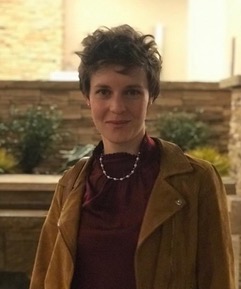
Dr. Aude Chesnais (United States, Colorado) has been working for 10 years on the ecological and social transition of the Pine Ridge, Lakota / Sioux Native Reservation in South Dakota, as well as on broader issues of food sovereignty, the right to land and sustainable development on US Indian territories. She earned her Ph.D. in sociology from Colorado State University (CSU) and taught there for more than five years. For several years, his doctoral research has followed local development micro-projects aimed at the self-sufficiency of food and energy of their promoters. The results of this research have contributed to the visibility of traditional indigenous ecological knowledge and to a decolonial political problematization of Native American resilience, and are the subject of future scientific publications. Dr. Chesnais is currently embarking on an ambitious collaborative research project aimed at creating an indicator of food sovereignty for Amerindian Reserves in the United States.
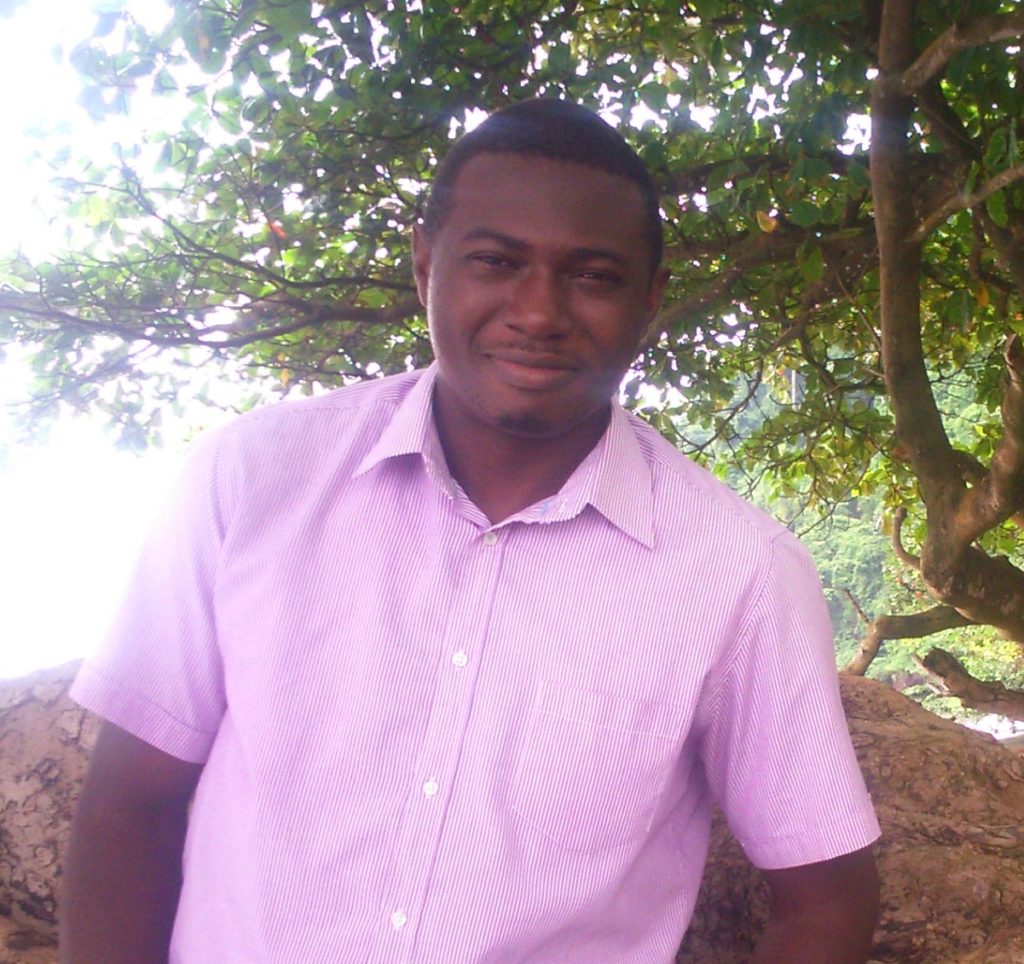
Guy Merlin TINDJOU OUANDIE (Cameroun) holds a Master’s degree in Earth Sciences Geotechnical option and Materials Valorization from the University of Dschang-Cameroon and a Professional Master in Environment and Management of Natural Resources from IPD-AC (Institute Pan-Africa for Development – Central Africa Douala-Cameroon).
As a specialist in sustainable development and environmental protection issues and issues, he is keen to promote the consideration of sustainable development by all. Passionate about the sustainable management of natural resources and sustainable agriculture, he makes a real fight and a continuous search for solutions. Also sensitive on topics such as the gender approach, CSR, local development, sustainable urbanization and waste management. It works in synergy with certain actors of the Cameroonian civil society to set up a vast network of influence.
After a brief stint in a company and consultant on some studies-Training and coaching, he is now CEO & Founder of TIMS, a specialized structure on the themes and issues of environmental protection and sustainable development. It offers a full range of services around sustainable development and environmental protection. Part of his work consists of designing training and events, creating and organizing events on sustainable development with companies and associations, advising the general public on environmental issues and climate change, the study, the council / Support for sustainable development with associations and companies, advice on sustainable agriculture for farmers and support for social actors in the context of local development.
Empowerment fo the Youth
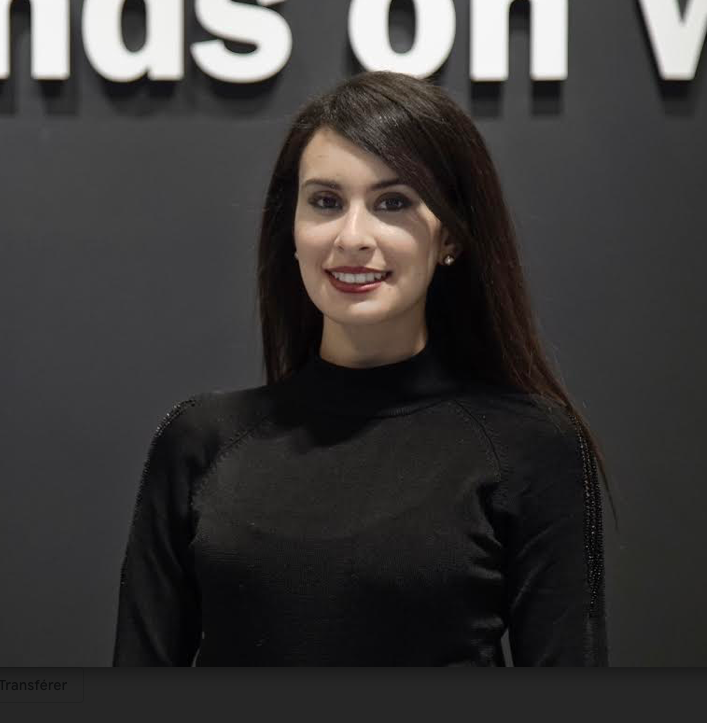
Kenza Benmoussa (Marroco) is a PhD candidate in information and communication and political sciences at the University of Côte d’Azur in Nice. Her research focuses on socio-digital media, political communication and cyberdemocracy. As part of her doctoral journey, she had the opportunity to teach for two years in China at the Normal University of Anqing and develop reflections on the place of technology in post-modern societies, she also focused on topics she is genuinely interested in studying such as facial recognition, its advantages and its limits.
Kenza is also part of the international community Global Shapers Nice Hub, an initiative of the World Economic Forum (WEF), where she was appointed as curator between 2018 and 2019.
Originally from Rabat, she made social engagement her favorite hobby, which allowed her to represent Morocco in several international meetings, notably during the opening of the European Parliament in Strasbourg as part of the EuroMed Scola program. But also, by accompanying the Tunisian delegation to COP25 in Madrid in the negotiations on technology transfer and engagement of youth.
Kenza has chosen to devote his energy to several social causes, particularly the environmental cause, by educating young people to act in the face of the climate emergency with digital tools. Because she strongly believes that young people do have a great potential to exploit in order to develop failing systems. From Asia to the Middle East passing by Europe, international news reminds us daily of the importance of mobilizing young people on the political, economic and societal front. Young people around the world share the same dream: being able to guarantee a better future for the next generations! To build a better future, we must invest in youth, support them, give them the tools they need to express themselves, innovate and co-create. It’s the era of youthquake!
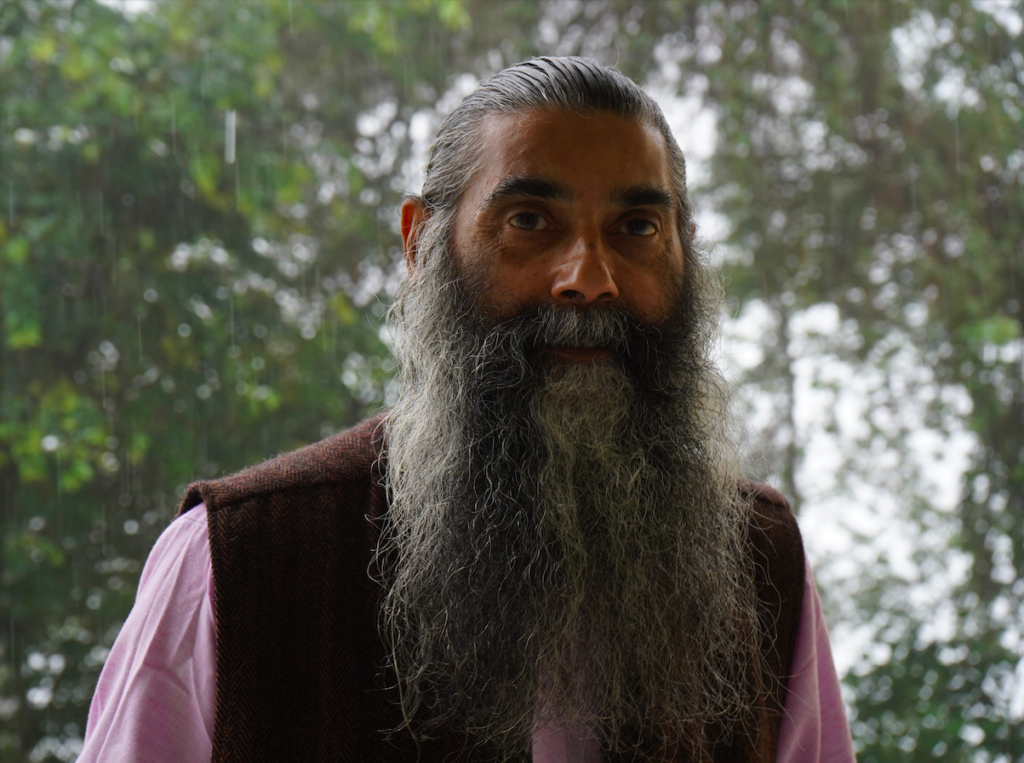
Ajay Rastogi (India) is based in Majkhali village of Uttarakhand Himalaya in India.
Over a career span of 30 years, Ajay has worked as a grassroots worker, manager in a Regional Intergovernmental Organisation covering 8 countries of the Hindukush Himalaya; Lead auditor for fairtrade projects in South Asia; led a project of the United Nations with Government of India encompassing 5 states. His expertise lies inter alia at the interface of environment and development as well as business and ethics.
While working with the diverse set of associate and entities in these various well meaning programmes; Ajay often felt lack of authentic motivation and empathy. If only we could bridge the gap: ‘we say one thing and do another’; and overcome the classical paradox of ‘us and them’ world could be a different place. Fuelled with this hope and striving towards greater integrity in personal life; Ajay moved to live and work in an Himalayan village 12 years ago.
His search for appropriate tools and approaches in how to bring about real change in the behaviour of the ‘privileged’ led him to design a residential programme called ‘pathways to sustainable development’. The 3 main pillars of this experiential and contemplative learning are: dignity of physical work; inter-dependence and inter-connectedness. The programme is hosted by the agrarian community and partly taught by the village women leaders. The programme is the recipient of International Mountain Prize 2020.
To promote the approach beyond the confines of the village, he helped create the Foundation for Contemplation of Nature 7 years ago. The Foundation has been able to hold side events in several global conferences and offices of world leaders bringing them closer to experience of Contemplation of (inner and outer) Nature. The concept has been well received and the work was published in Chile, ‘Contemplacion de la Naturelza’ for Spanish speakers and it is available on Amazon.
Academically, Ajay has master’s degrees in Applied Ethics as well as in Environmental Sciences and a baccalaureate in Agriculture and Agroforestry. He has travelled to over 25 countries in relation with his work. He is recipient of several awards and honours such as South Asian Youth Leader (1991); Erasmus Mundus European Union Fellow (2007) and Nehru Fulbright Environmental Leadership Fellow (2010). His work has taken him to over 25 countries; he is respectful of all cultures, dignity, and equity and follows a life deeply connected to earth elements.
He is passionately involved in Biocultural Heritage focussing on Indigenous Food Systems. We have done a recipe book for the Central Himalaya and happy to share a pdf free. Please write for a copy or for any additional details at: <ajay.rastogi@foundnature.org>
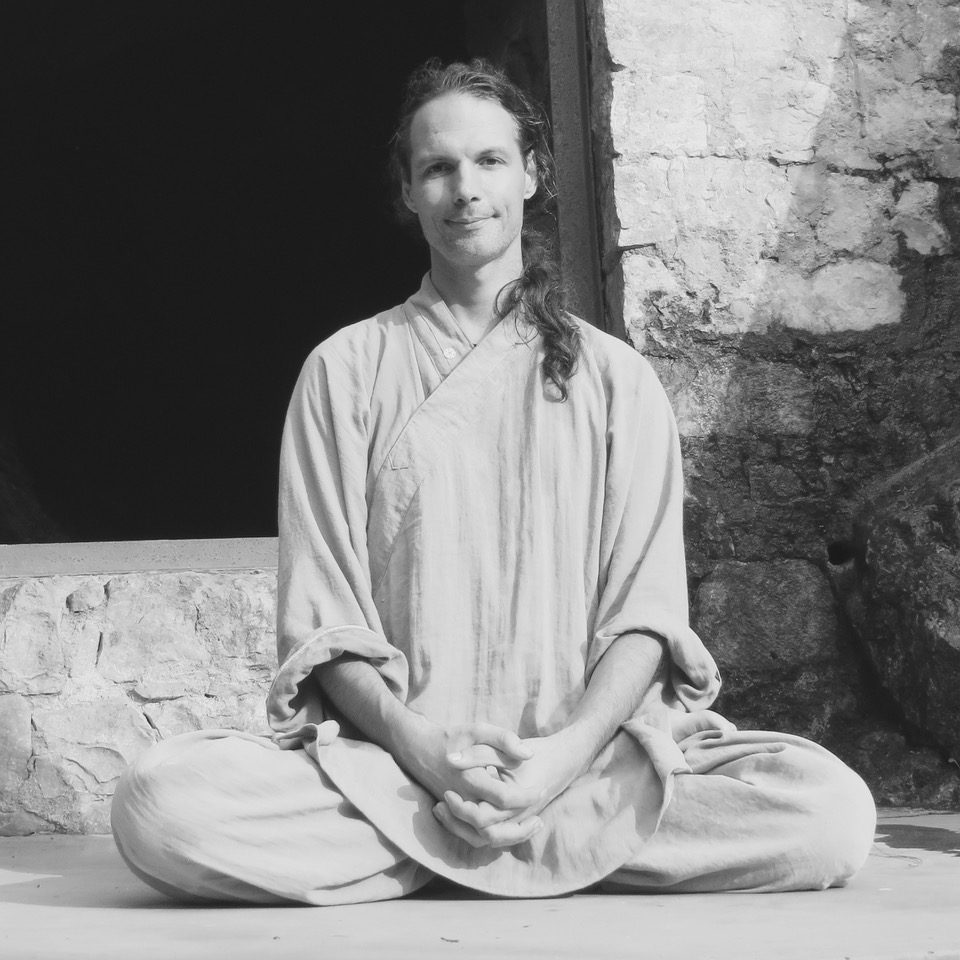
Christoph Eberhard has dedicated his life to a journey of dialogue with others, oneself, nature and beyond.
In his academic career, as a professor and researcher in anthropology and legal theory, he explored the issues of responsibility and intercultural dialogue for our living together by re-examining globalization, human rights, governance and sustainable development. in individual and collective research which has crystallized in numerous works. The author of Human Rights and Intercultural Dialogue, Le Droit au mirror des cultures (The Right to the Mirror of Cultures). For another globalization and Daring the pluriverse. For intercultural and responsible globalization. As scientific director we will retain Law, governance and sustainable development, Translating our planetary responsibilities. Recompose our legal landscapes, Land and environmental issues. Afro-Indian Dialogues and The Courage of Alternatives.
In recent years, he has devoted himself more particularly to the deepening of traditional knowledge systems and teaches yoga and Chinese internal arts, while remaining an associate researcher at INNÉ and LABRRI (Research laboratory in intercultural relations of the Montreal university). We can get an idea of his work on his YouTube page: https://www.youtube.com/DialoguesForChange
Partnerships

The Foundation for the Contemplation of Nature, India
Mountain Agriculture Policy Dialogue : https://pubs.iied.org/G04288/
Mountain Prize Blog: http://foundnature.org
Mountain Resiliency film : https://vimeo.com/327834894
Links to Podcasts on Deep Ecology : https://nordicbynature.transistor.fm/
AWELY Des animaux et des hommes
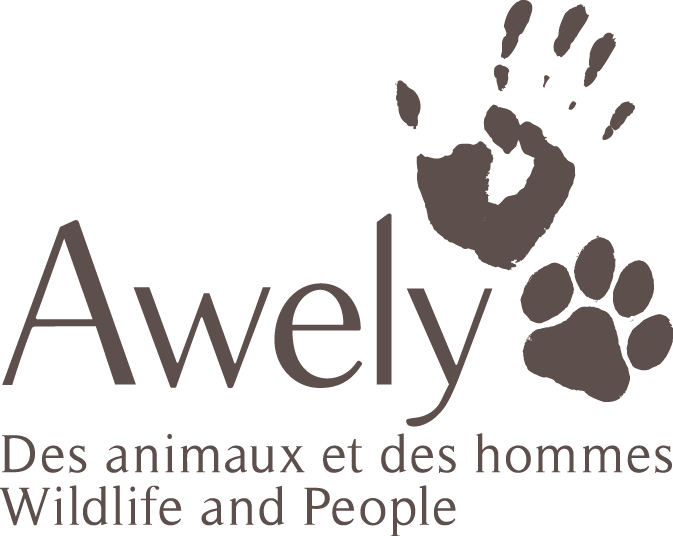
Awely puts its enthusiasm and skills at the service of the conservation of endangered species and the ecosystems that shelter them. In order to achieve its goals in a sustainable manner, Awely works on Human / Animal coexistence and the limitation of conflicts between villagers and animals. A problem on which Awely has developed its expertise in Africa and Asia for ten years now.

TIMS Artisan of development TIMS contributes to the awareness and awakening of populations on the importance for all to participate in the protection of our living environment, and is specialized in the issues and problems related to sustainable development and protection environment and climate.
